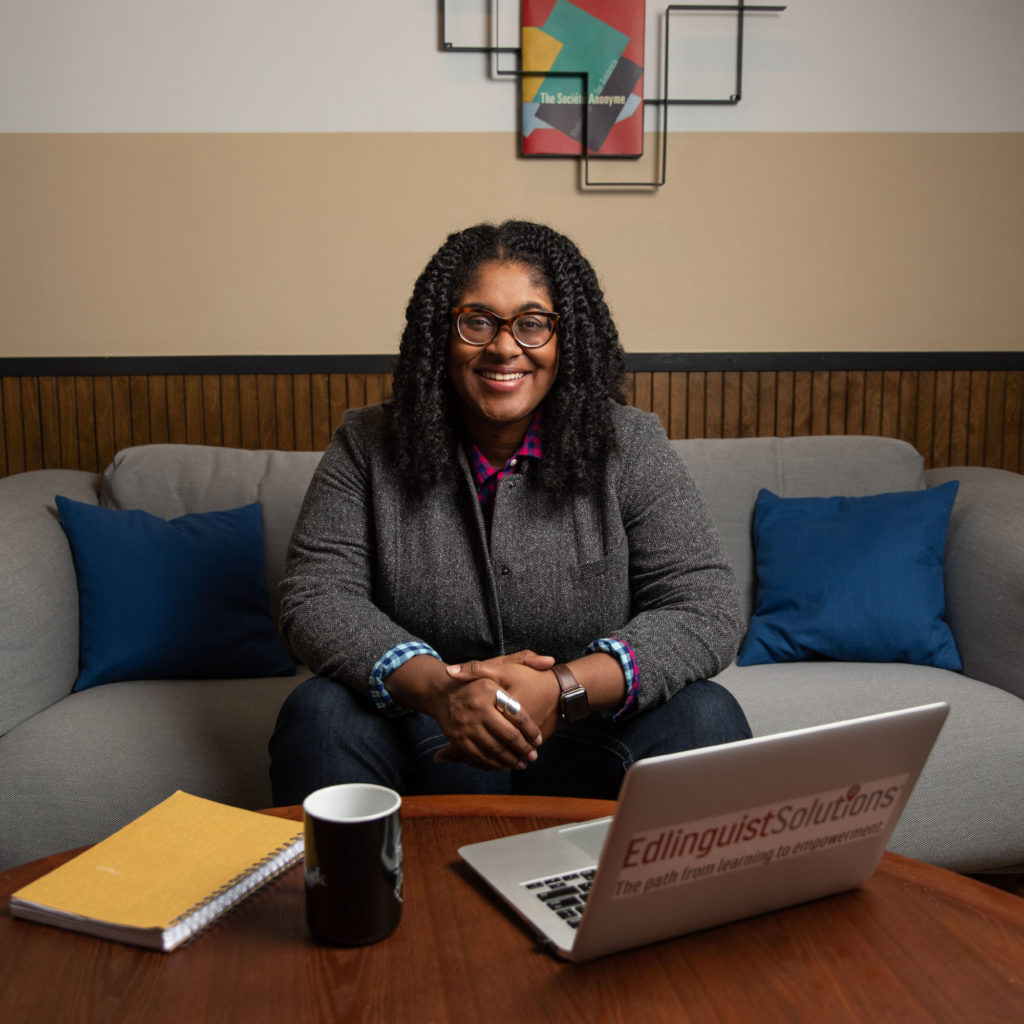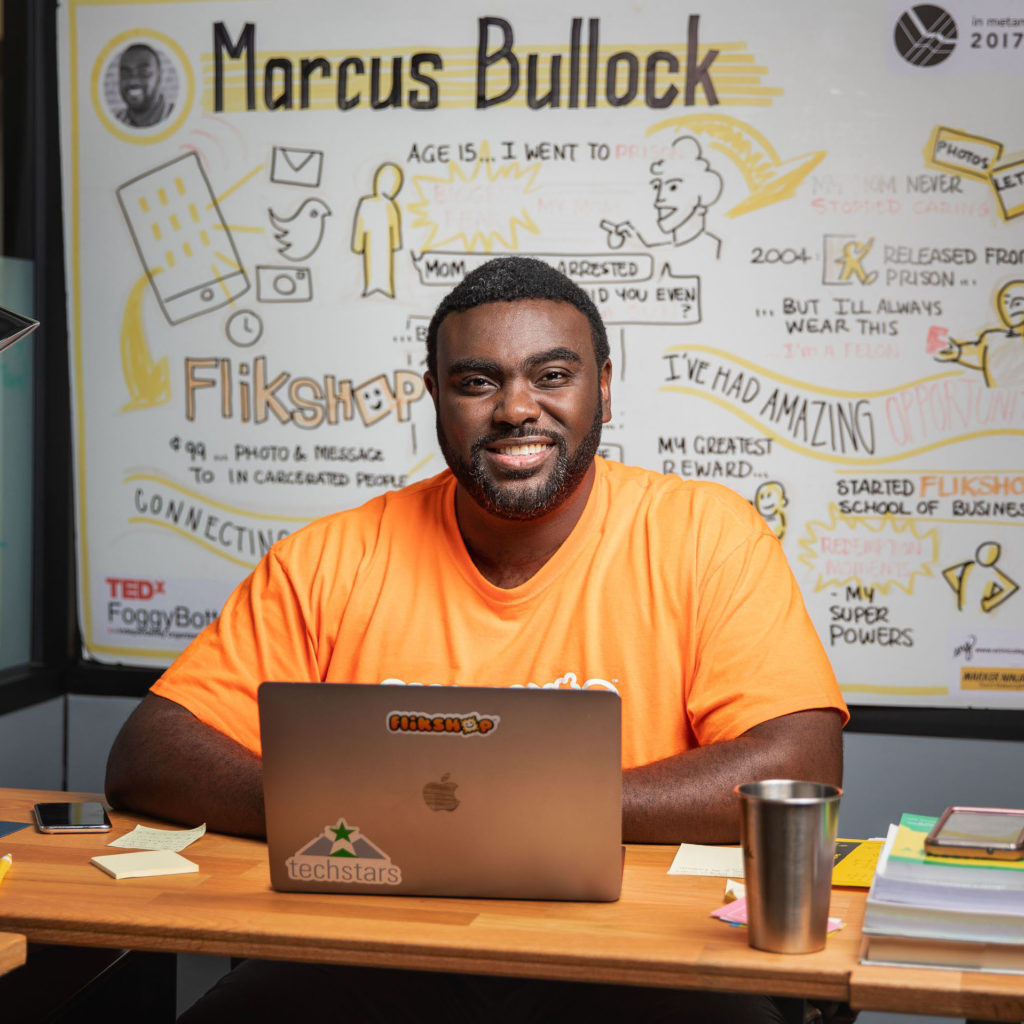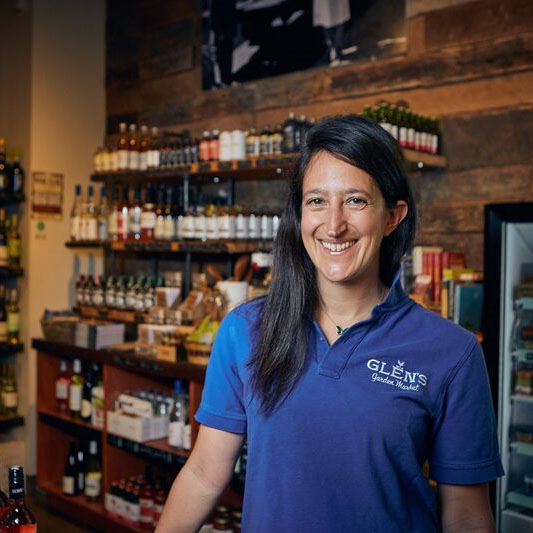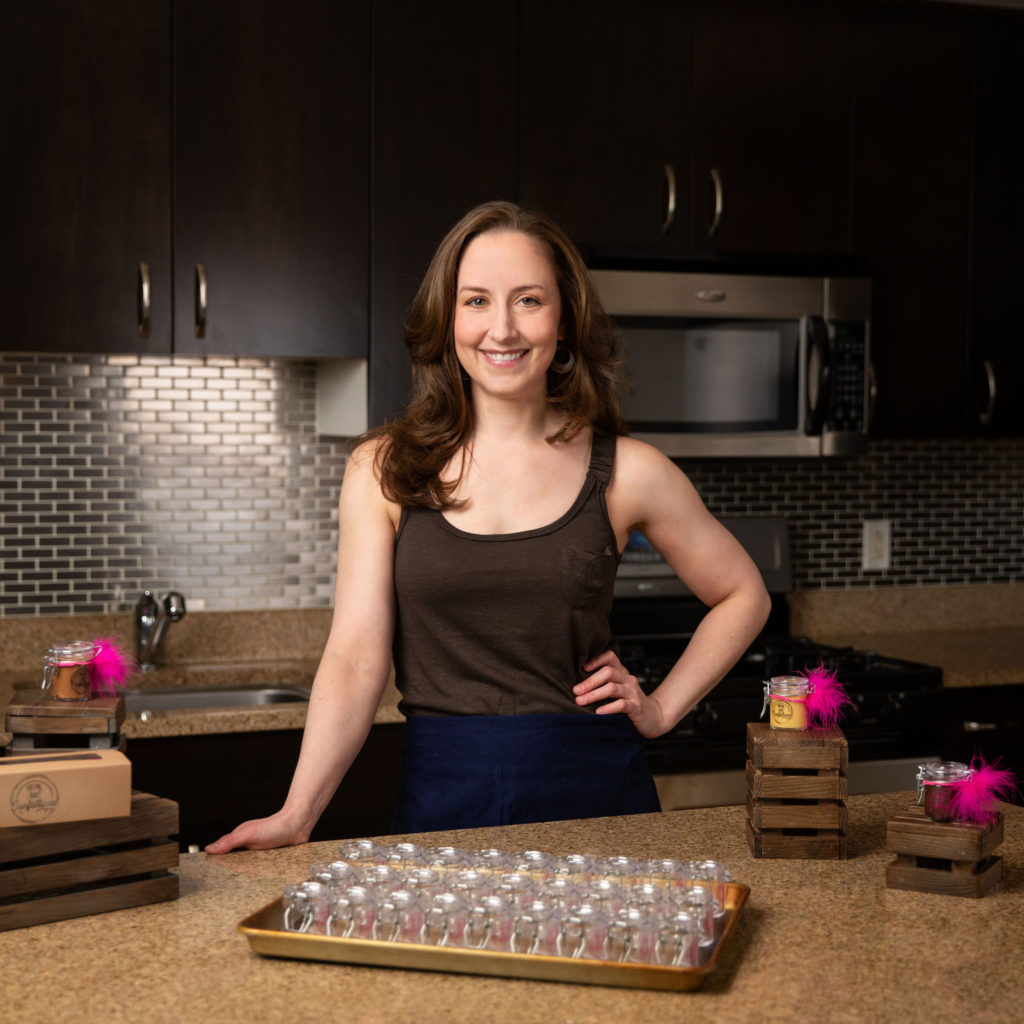LaNysha Adams, creator of Edlinguist
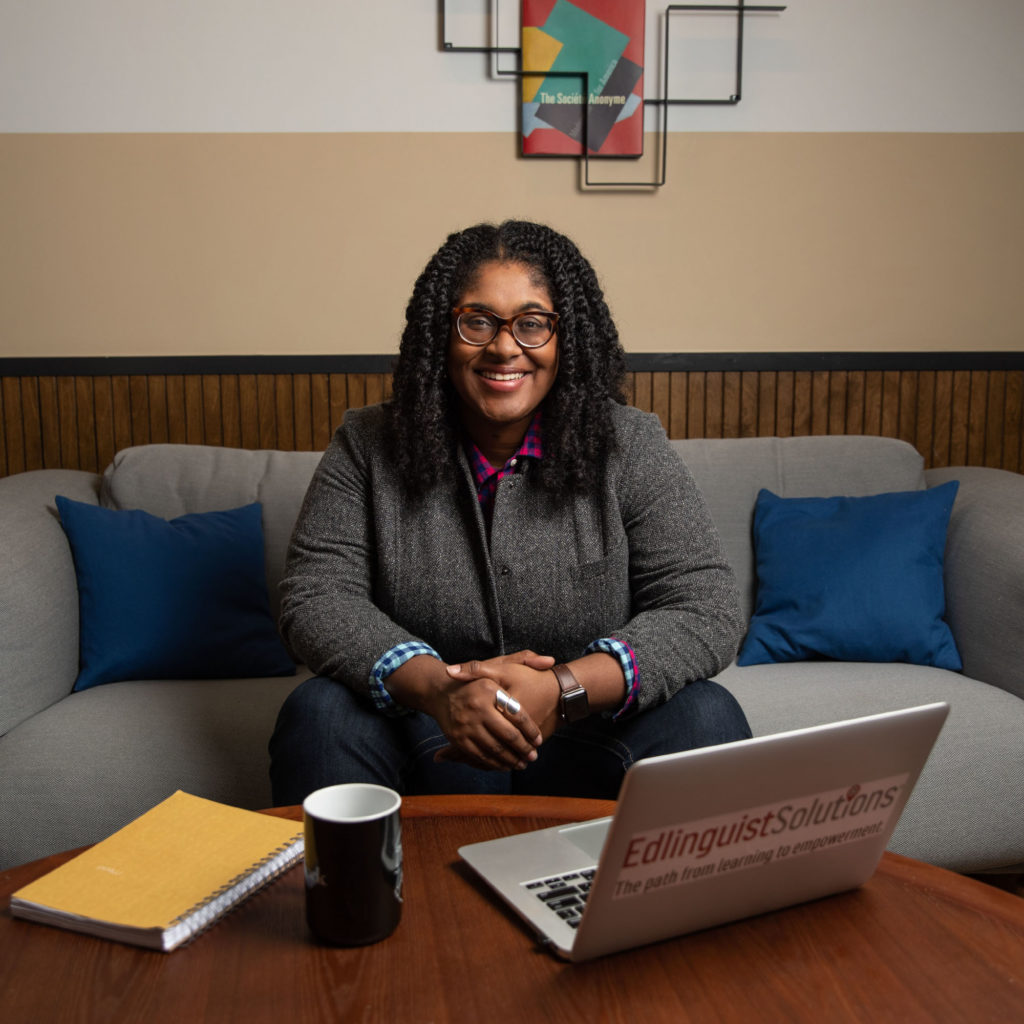
LaNysha Adams, Ph.D. recently started an app-based business in DC called Br8kfree, as a revenue generating venture partially owned by the nonprofit Each One Teach One Educational Fund, a nonprofit organization dedicated to providing holistic support for youth, early career professionals, educators, and career changers committed to social impact. Like her primary business, Br8kfree LLC embodies LaNysha’s entrepreneurial spirit by giving her the flexibility and freedom to earn a living on her terms while also helping those in need. In her own words, “to create the life that I want is what drives me to have my own business.”
Her greatest obstacle to creating the app, however, was not raising capital or finding clients but navigating DC’s business licensing process. Her LLC application sat untouched for over a month before it was approved. Once it was approved, she was never told she also needed a business license to operate. After four months, she still has not had all her questions answered by multiple DC government agencies, leaving her company’s future at risk.
For LaNysha, this was not a problem when she incorporated her other organization Edlinguist Solutions in Maryland. Her application was approved instantly, and no other licenses were required for her to operate. She was ready to serve clients the moment she paid her business registration fees.
LaNysha wants to serve the youth of Wards 7 and 8 with Br8kfree, but still cannot bring her organization to its full potential because of regulatory uncertainty. If DC had a true one-stop-shop to get her questions answered, LaNysha would spend less time waiting in line and more time growing her company.
Marcus Bullock, creator of Flikshop
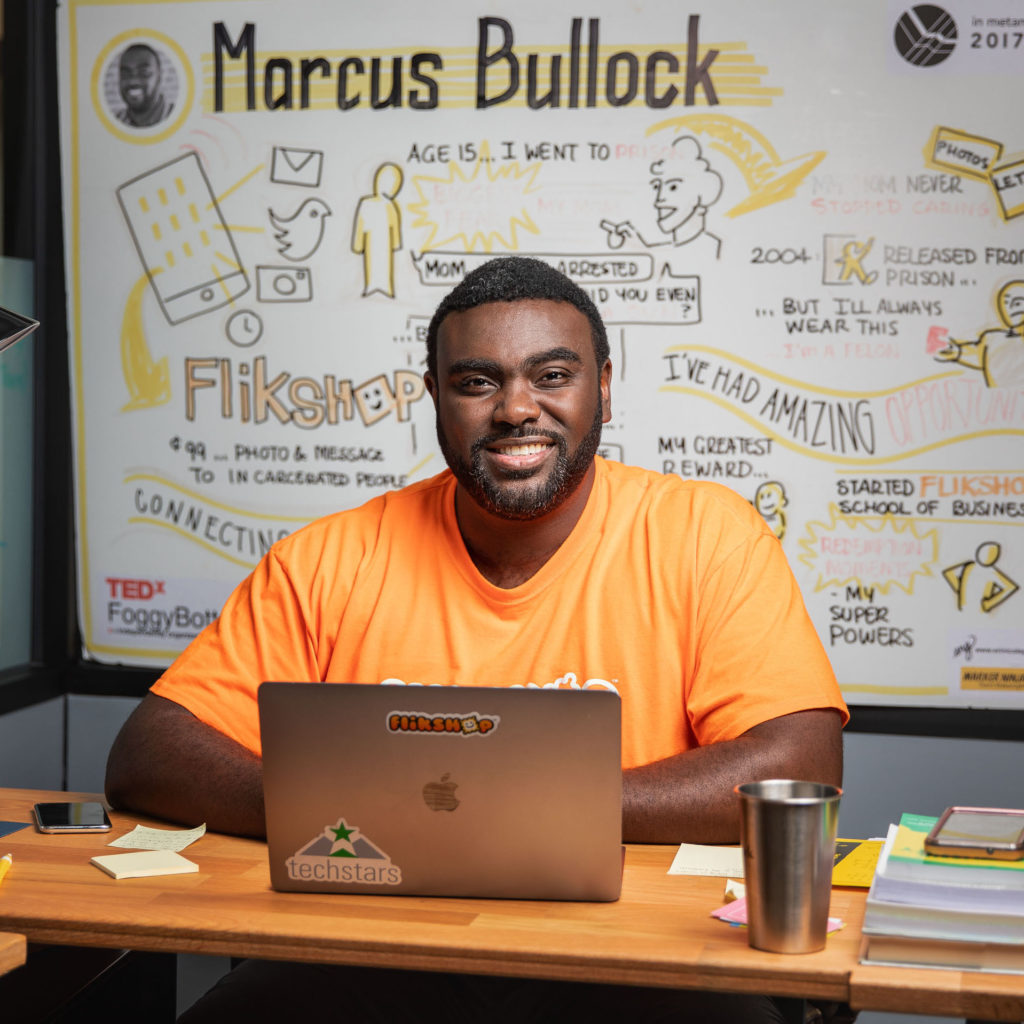
“Marcus Bullock is a DMV native and founder of Flikshop, an app-based service that keeps families connected with their incarcerated loved ones. Since most people in prison can only receive letters, Marcus’ app lets families easily send photos and short notes, removing the need to fumble with prison mail rules, envelopes and stamps.
After being released from prison in 2004, Marcus’ first endeavor was starting a painting and contracting company. While operating the business he was intentional about employing other returning citizens. He founded Flikshop in 2011 after experiencing the disconnect from family members firsthand. Since there is limited to no access to phones and the internet in prison, receiving mail is a vital lifeline for the people that live there. From Flikshop’s success, Marcus also founded the Flikshop School of Business, which teaches incarcerated youth life skills and entrepreneurship principles.
When it came to start his business in the District, Marcus “never thought the process would be so arduous.” Because of many fees, and an unclear licensing structure for his mobile application company, it was a challenge for Marcus to launch the business. As someone who had to work hard to rebuild his life, he supports other returning citizens who want to do the same. By making the process simpler, other returning citizens like Marcus can rebuild their own lives by starting a business in the District.”
Danielle Vogel, creator of Glen’s Garden Market
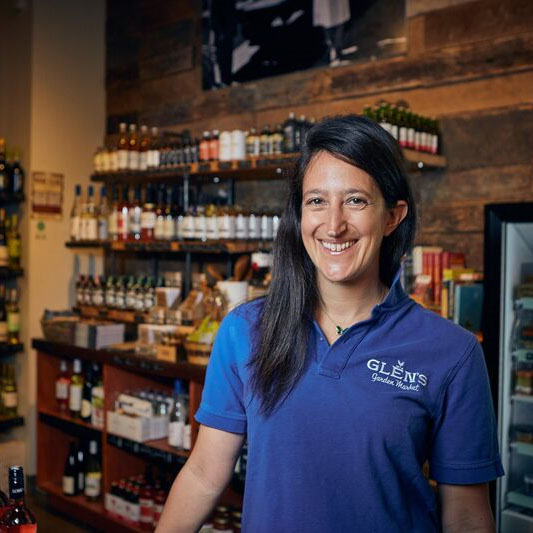
Danielle Vogel is the founder and owner of Glen’s Garden Market in Dupont Circle, a locally sourced grocery, deli, and craft beer bar. The market is a center of community where people can gather to shop for their groceries or grab a drink with friends.
After spending a decade on Capitol Hill as an environmental policy adviser, Danielle decided that Congress wasn’t doing enough to address climate change. She founded Glen’s to make a greater difference in business sustainability. In the six years since she founded Glen’s, Danielle has helped launch 83 small food businesses committed to sustainability, making Glen’s not only a neighborhood grocery store, but also an incubator for small, local businesses.
Starting Glen’s was no easy task for Danielle. “Getting straight answers from DCRA is nearly impossible,” she says, “and every trip to the agency takes far too long because no one seems to understand what anyone else in the building does, and yet everyone’s top priority seem to be shuttling you to the back of someone else’s long line (which is usually the wrong one).”
Danielle’s frustrations are not uncommon: Many entrepreneurs must visit DCRA in person to receive clear direction, resulting in lost time and productivity. Many business owners cannot afford to waste precious resources when starting up their business. More interagency communication along with getting more of the business startup process online would remedy these frustrations.
Nevertheless, Danielle continues to do everything she can to stay in DC and not move to a neighboring jurisdiction like Arlington, which has a friendlier business climate and licensing process. She’s lived in the District for over 20 years and hopes to continue to be a pillar of local business in her neighborhood.
Emily Annick, creator of 440 Confections
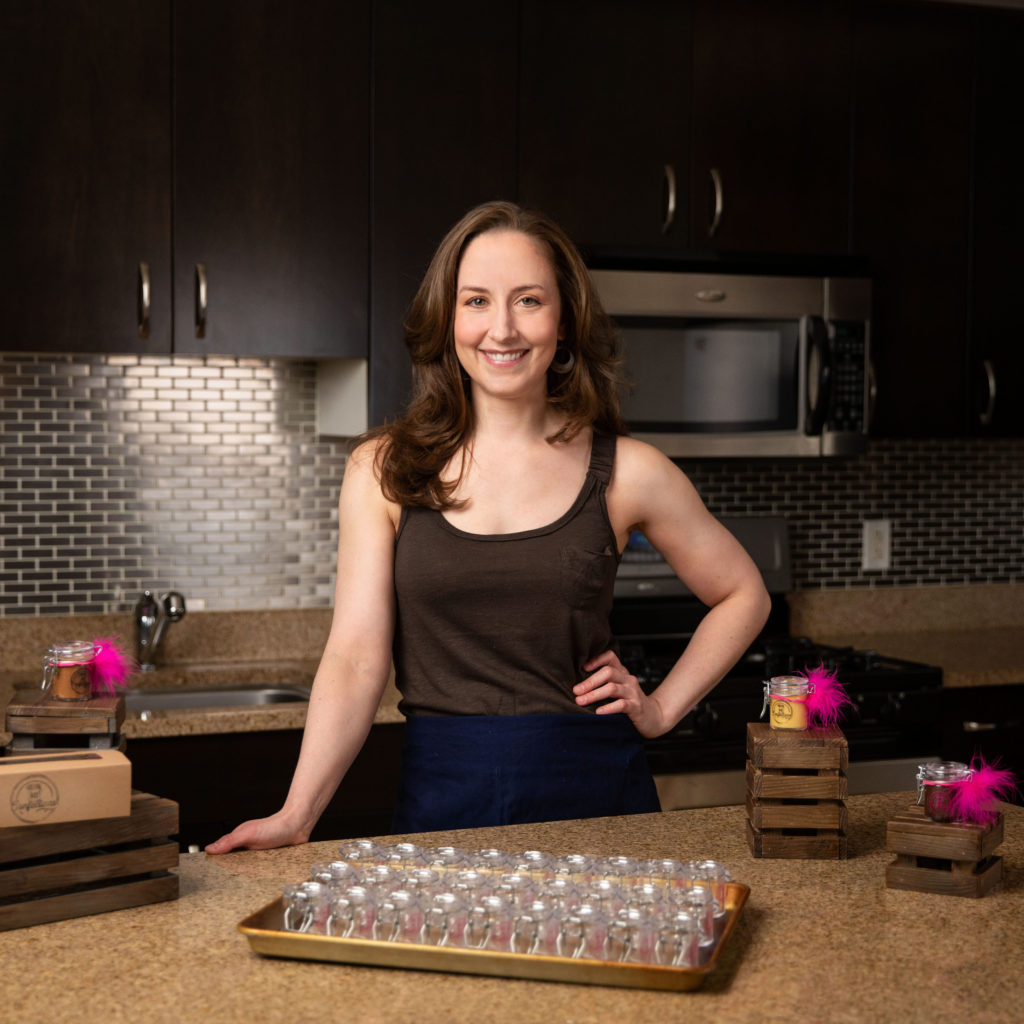
Emily Annick is the founder of 440 Confections, a home-based bakery that focuses on specialty desserts such as flavored chocolate spreads, gourmet marshmallows, and custom s’mores. She’s been developing her products since 2013 and slowly wants to build her business from a home-based-business to a full bakery. Currently, Emily maintains her full-time job as an accountant to earn a living.
Despite DC legalizing cottage food home-based businesses in 2013, it was not until December 2017 that the Department of Health enacted the law and created a cottage food business registry. As it was too late to get certified in time for the 2019 market season, in November 2018, Emily became the first (and still only) home-based business to be registered and licensed in DC as a cottage food producer.
“I contacted various individuals in the DC Government and DC farmers markets during the intervening years . . .to get the law enacted and improved without luck. Every week for almost a year, I had a calendar reminder to email the DC Government to ask if the law had been enacted yet,” Emily said. It took her nearly five years to register her business as a cottage food producer in the District. But, even though she’s finally registered, the law’s $25,000 revenue cap prevents her from baking full-time to support herself. In addition, the law only allows Emily to sell at farmers markets and special events in DC, which already have limited space available. This leaves Emily unable to grow her business.
Just like starting a brick and mortar business, starting a home-based business in DC, especially a food-focused business, is time-consuming, cumbersome, and overly restrictive. By allowing cottage food producers to sell their products in a wider array of locations and by lifting the $25,000 revenue cap, the District can truly support its home-based businesses and allow them to thrive.

